As part of our 2021 Guest of Honor weeks, the Sirens team recommends books that would be friends with a guest of honor's books. Below is a curated list of titles that we feel complement the works of Sarah Gailey, author of American Hippo, The Fisher of Bones, Magic for Liars, Upright Women Wanted and When We Were Magic. If you enjoyed their work, we hope you check out these other reads—short fiction and super-smart non-fiction in addition to novels—that feature badass queer protagonists, hope, and discovering yourself; contemporary noir, witchery, and weird West; impossible things, reclaimed stories, and truly awesome animals.
Archive for books


Sarah Gailey’s Book List with Four Words on Each
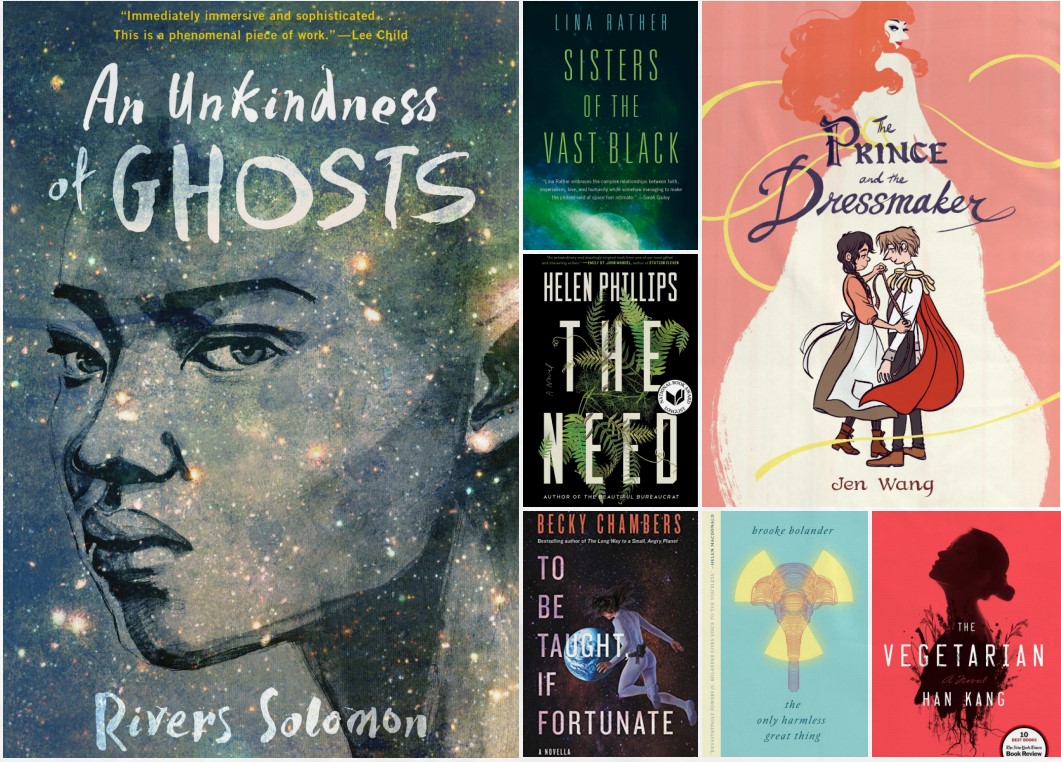
Sirens Guest of Honor Sarah Gailey shares a recommended reading list, with four descriptors for each. If you enjoy Sarah’s work, or you want a recommended reading list of exceptional works, this list is for you. Take it away, Sarah!
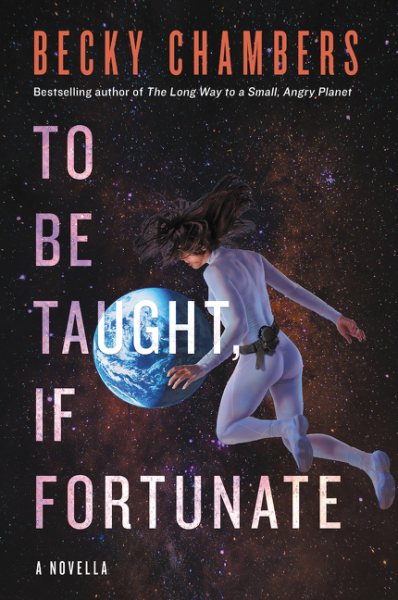
To Be Taught, If Fortunate
by Becky Chambers
beautiful
hopeful
honest
tender
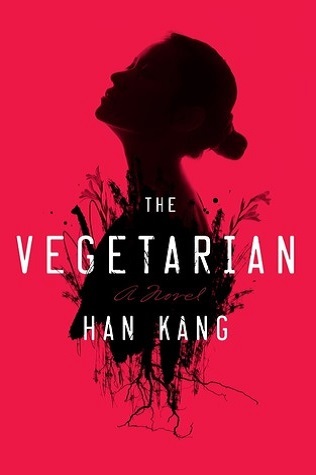
The Vegetarian
by Han Kang
intense
harrowing
scathing
brutal
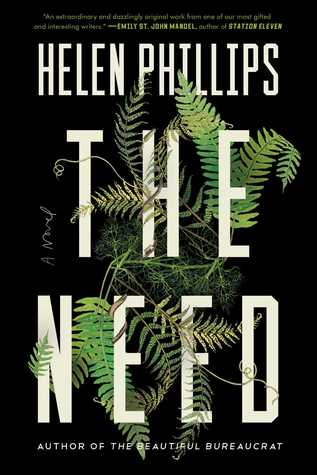
The Need
by Helen Phillips
gripping
dark
furious
surprising
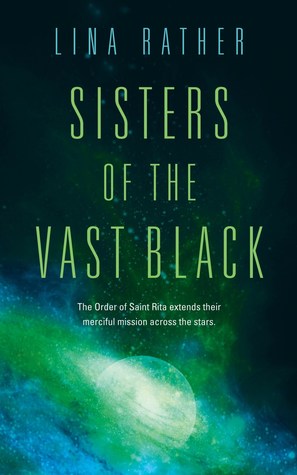
Sisters of the Vast Black
by Lina Rather
unflinching
kind
confrontational
sweet
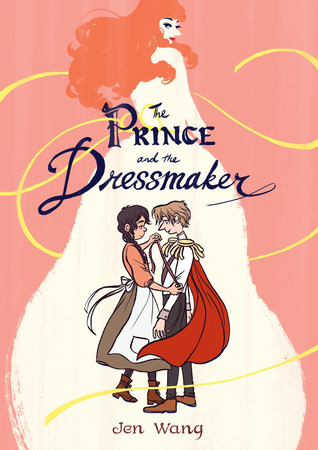
The Prince and the Dressmaker
by Jen Wang
lovely
aching
immersive
perfect
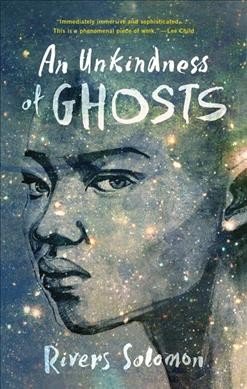
An Unkindness of Ghosts
by Rivers Solomon
cutthroat
direct
relentless
brilliant

The Only Harmless Great Thing
by Brooke Bolander
furious
dazzling
ambitious
satisfying

Hugo Award winner and bestselling author Sarah Gailey is an internationally published writer of fiction and nonfiction. Their nonfiction has been published by Mashable and the Boston Globe, and they won a Hugo award for Best Fan Writer. Their most recent fiction credits include Vice and The Atlantic. Their debut novella, River of Teeth, was a 2018 Hugo and Nebula award finalist. Their bestselling adult novel debut, Magic for Liars, was published in 2019; their latest novella, Upright Women Wanted, was published in February 2020. Their young adult novel debut, When We Were Magic, came out in March 2020.
For more information about Sarah, please visit her website or her Twitter.

American Hippo by Sarah Gailey: Sirens Book Reviews
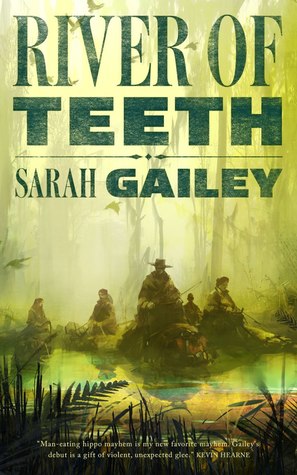
HALLIE TIBBETTS
Before I read River of Teeth by Sarah Gailey, I believed I knew the following facts about hippos:
-
There is a hippo named Fiona, who lives in a zoo somewhere, that people like a lot.
-
Hippos eat a lot and poop a lot. In fact, they are champion poopers and thus need quite a bit of personal space.
-
Hippos can’t jump.
-
Hippos can kill people if you bother them. If you are farming reeds and pomegranates for the pharaoh, they might kill you even if you don’t bother them, because they’re upset that you’re not sharing or something. (I learned this from a video game.)
-
There is a game called Hungry Hungry Hippos. Perhaps you have played it.
-
Pretending you are playing Hungry Hungry Hippos is one way to complete a chore commonly known as “vacuuming.”
The idea for River of Teeth comes from a little-known but verifiable fact: At one time, the United States needed meat and considered hippo ranching in Louisiana. Yes, raising those dangerous, enormous beasts to grace our plates. Imagine it: a hippopotamus porterhouse with all the sides. Some of the largest beef porterhouses are 40 ounces, or 1.134 kilograms for the metric folks. Now, all things won’t be equal, but if an average steer weighs about 750 pounds (340 kg), and an average male hippo weighs about 3,300 pounds (1,500 kg), your server would be bringing you a porterhouse coming in just under 11 pounds, or about 5 kilograms. So of course this incredible excess might have seemed like an excellent enterprise to carnivorous folk.
In the end, the hippo did not enter the pantheon of sounds we make during a rousing performance of “Old MacDonald.”
But River of Teeth imagines they did—and that some hippos escaped their fate to infest part of the lower Mississippi, and went feral between the boundary of an upstream dam and a downstream gate. Our story begins when a group of hoppers—think cowhand, perhaps a term for anyone who can ride a domesticated hippo—is tasked by leader Winslow Houndstooth, who’s been contracted by the federal government, to get the feral hippos past the confining gate and out into the Gulf.
And this (very diverse) group of hoppers is wild. They’ve got skills ranging from thievery to explosives to murder. There is absolutely no question about the grayness of these morally gray characters, and nearly all whom they meet, as they lie, cheat, con, and otherwise go about the business of a feral hippo drive. (There will be violence, and it will be explicit.) It’s refreshing to encounter intriguing characters who are more intense and complicated than lovable rogues with hearts of gold, but who act in ways consistent and logical.
Another delightful aspect of River of Teeth is its specific way of incorporating history. There’s a sense of the stretch pre- and post-Civil War when this could have happened, and enough details for the reader to fill in the worldbuilding without overexplaining in this novella. Of course there would be steamboats hosting gamblers in hippo-infested waters; of course your local watering hole would need an actual watering hole for hippo storage instead of a hitching post.
Finally, this fast-paced read stands alone, but leads into a related novella and short stories—and no spoilers, but if you’re the sort of reader who, like me, ever enjoyed letting Godzilla loose in SimCity and is entertained by the speculative destruction in movies like Volcano (1997) or San Andreas (2015), there is satisfying chaos in store.
With hippos.
KAREN BAILEY
Sarah Gailey’s American Hippo gathers all of their stories (two novellas and two short stories) about an alternate version of the American West where hippo ranches line rivers and feral hippos roam the Mississippi River.
These stories are quirky, violent capers with a dangerous cast of characters—and that is just talking about the hippos!
The stories are based around the real proposition made in 1910 to import hippopotamuses from Africa to the Gulf Coast of the United States and raise them as a source of meat. While in reality, the scheme never came to fruition, Gailey moved the beginnings of the scheme back to 1857 and set their stories in the late 1800s. In this alternate history, the United States government dammed up a section of the Mississippi River in Louisiana to create more land for hippo ranching. Eventually, this section of the river, known as the “Harriet,” transformed itself from orderly hippo ranches to dangerous real estate filled with feral hippos and unsavory people.
It is in this world that Gailey’s work takes place. The first novella, River of Teeth, introduces Winslow Remington Houndstooth (with hippo Ruby). He is a former hippo rancher-turned-thief, who has accepted a commission from the United States government to rid the Harriet of the feral hippos. He gathers together demolitions expert Hero Shackleby (with hippo Abigail), con artist Regina “Archie” Archambault (with hippo Rosa), and mercenary Adelia Reyes (with hippos Zahra and Stasia). On the surface, this seems like an odd combination of people to gather to rid an area of feral hippos. However, ridding the Harriet of feral hippos is not Houndstooth’s only objective; rather, he plans to use the commission to strike a blow at corrupt businessman Travers. Travers runs a series of riverboats and he rules those with absolute authority: If you are caught cheating, you will be immediately thrown to the feral hippos in the river. We also find out that Travers had Houndstooth’s hippo ranch burned down, leaving him with nothing but debt and one baby hippo.
River of Teeth is a fast-paced, fun, and gory heist story with a twist of revenge.
There is a fair amount of violence and not just from encounters with feral hippos. Houndstooth and company are all willing to do whatever they have to do to protect themselves. It is fascinating to see their relationships grow through the story. While Hero, Archie, and Adelia originally agree to join Houndstooth’s crew for mostly monetary reasons, their focus changes throughout the story and that change is one of the most satisfying aspects of Gailey’s work. The ending of River of Teeth wraps up enough to feel finished, but also leaves the door open for the next installment.
Taste of Marrow, the second novella of the collection, deals with the aftermath of the events in River of Teeth and has a much more somber feel. The group has been separated. Adelia and Hero are dealing with the aftermath of Hero’s injuries, the birth of Adelia’s daughter, and the bounty on Adelia’s head. Houndstooth is desperately trying to find Hero, while Archie is trying to keep Houndstooth alive and preferably clear-headed. This story shows a different view of the characters. While they were focused on money and revenge in the first story, now they are focused on reuniting with each other and eliminating the obstacles that prevent that reunion. It’s a messy, difficult journey that shows the challenges they face to continue to grow into a family. It’s hard for a bunch of people who are borderline criminals to have a relaxing retirement, but the ending does hint that this might be possible.
The two short stories included in American Hippo are much more light-hearted than either River of Teeth or Taste of Marrow, and expand on two incidents that are mentioned in the novellas. In “Worth Her Weight in Gold,” Houndstooth’s baby hippo has grown up into his mount Ruby. She is an ornery, vain hippo who would just as soon chomp on you as look at you, but she loves Houndstooth and he loves her. However, when he is on a job, Houndstooth isn’t always as careful about Ruby’s tooth care as he should be. It is a quick read, but it shows just how much Houndstooth loves Ruby and exactly what he will give up for her health and happiness. It also gives us a close-up view of Ruby’s personality, which is a delightful mix of charm and chomping.
“Nine and a Half” tells the story of a job that Houndstooth and Archie pull together when they meet U.S. Marshal Gran Carter. It also answers the ongoing question of how many times Archie has saved Houndstooth—or does it? This story ends with an excellent escape scene, which is a fun glimpse into the more ridiculous side of Archie and Houndstooth.
American Hippo offers an alternate historical world with fast-paced action and complex characters. The hippos are an excellent addition to the story, showing a variety of personalities from calm and placid to high-strung and energetic. They provide a way for their owners to show their humanity because the people are a fascinating mix of characters, none of whom could be classified as actually “good” people. However, they are charismatic and complicated, loving to friends and devoted to their hippos, and they will cheerfully steal the ring from your finger if it will help them. I love the fact that it is based in a real proposition and plays with a might have been. I love the variety of personalities and motivations, but mostly, I love the fact that the hippos get a story where they can be as sweet and brutal as they are in real life.
When she is not wrangling students (and co-workers) for a music non-profit, Karen Bailey can often be found working on completing the Sirens Reading Challenge. She also keeps busy with quilting, crocheting, and paper-crafts.
Hallie Tibbetts works in children’s publishing, editing books for all ages. She has a love of adventure, travel, interesting food, and dinosaurs (preferably all at once). She is one of the founders of Narrate Conferences, the presenting organization behind Sirens, and has served in various roles, including conference chair and programming coordinator.

Magic for Liars by Sarah Gailey: Sirens Book Review
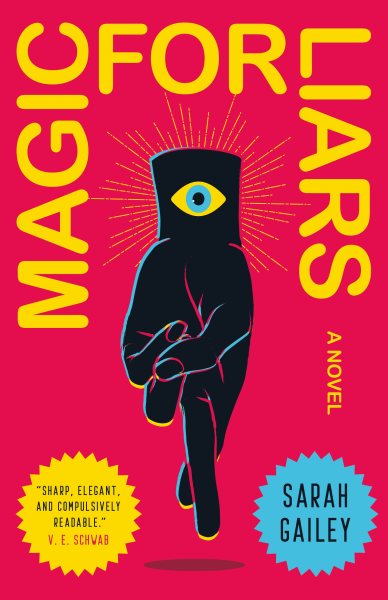
Back in the days of Harry Potter fandom, I often found myself on the side of Muggles, hating the way the books found casual cruelty towards them so funny, so deserving. I remember once talking with someone who was surprised to discover that I identified with the Muggles in the story when it never occurred to them that they wouldn’t be a wizard. I recall saying something like, “If you point a stick at a door and say something in fake-Latin, will the door open? No? Then you are a Muggle.”
At the time I thought I was just being logical, but it was more than that. I automatically assume that if I lived in a world where there were wizards or mutants or benders, I wouldn’t be one of them. And I’d be jealous. So I always identify with the also-ran, the ordinary person, the not-Chosen One, the B-student. And I identify with them as such. I don’t, as some prefer, like to imagine stories where it turns out everyone’s wrong or they’re misunderstood or simply have bad teachers. No, I find the plight of the non-gifted too compelling.
When I started reading Sarah Gailey’s Magic for Liars, I knew only that it was about a non-magical detective investigating a murder at the magical school where her estranged sister teaches. But I had no idea it would be so completely the story of the girl left behind. One that dealt with all the hopeless pain that brings, and the hard-won maturity and wisdom it could offer. Maturity and wisdom that could be denied those Chosen Ones with all the gifts.
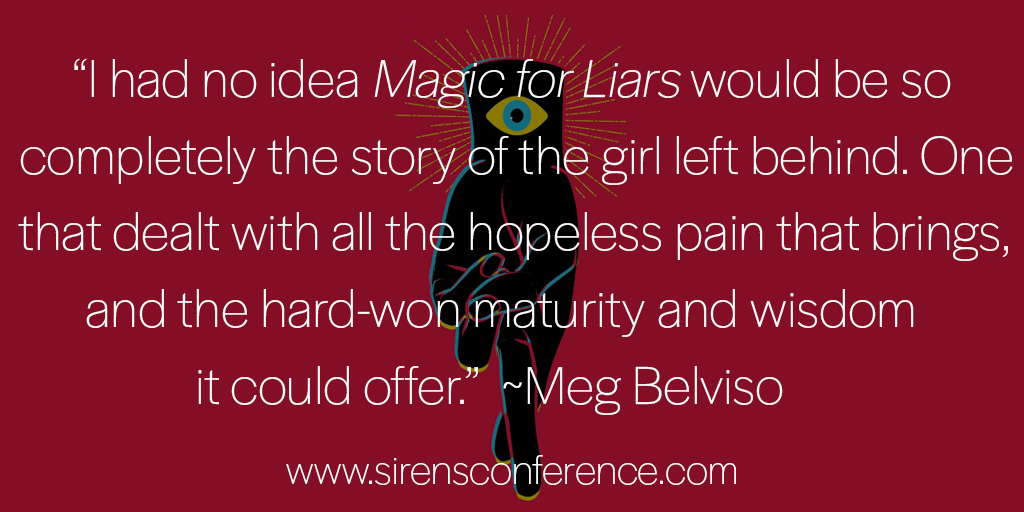
A twist of DNA gave Ivy Gamble’s sister Tabitha all the magic and the psychological damage of that random gene mutation is intense. Some authors might have used Ivy’s jealousy and bitterness to turn her into a villain who attacks her sister, proving how she didn’t deserve magic anyway. (Looking at you, J.K. Rowling!) But Gailey’s heroine hurts nobody more than herself. She doesn’t notice when her lack of magic gives her a clearer view of the case than the mages around her—and Gailey never makes that blind spot so obvious as to feel condescending.
Ivy’s life experience also gives her a unique understanding of the teenagers she’s interviewing, one that I personally haven’t come across very much in YA. She understands how much they want to be the hero of the story—any story. She uses this understanding to manipulate them, yes, but not without respect. So many YA books are about teenagers thrust into adventure that gives their lives a clear purpose and tells them who they are. Gailey’s teenagers, though magical, are just stumbling around searching for that meaning. Ivy sometimes resents them for “wasting” their magic on silly things like pranks, but of course doesn’t know what she would have done with magic had she had any. Non-magical gifts can be wasted too.
The relationship between the two sisters, or the lack thereof, is at the center of the story, and Gailey doesn’t take the easy way out here either. Reading it, I felt my own emotions rising and falling along with Ivy’s, desperately wanting her to recapture the close bond with a sister she had in her childhood, fearing for her because of how much she wanted it, hoping she would get what she was looking for one minute, cynically pitying her for thinking she’d get it the next. I wanted to yell at Ivy that of course lying to anyone about her own magical status would come back to bite her, but when it did, I wanted to tell off any mage who held it against her.
There’s a moment in the book where Ivy describes herself and a magical character talking as if “speaking two different but peripheral languages.” Ivy and her sister are likewise living two different but peripheral life stories that may only occasionally and coincidentally connect. They’ve both been shaped by the exact same circumstances—their magical ability, the death of their mother, their father’s grief—and reacted to them in opposite ways that mirror their abilities—one forever defining herself as powerless, the other defining herself solely through her power. On paper they might have seemed destined to easily reunite and help each other. But life, even in a world where prophesies exist and bad memories can be extracted and thrown out like medical waste, is just not that fair.
 Meg Belviso holds a BA in English from Smith College and an MFA from Columbia University. As a writer and editor, she chronicles angel encounters as staff editor of Angels on Earth magazine and has written for various fiction and nonfiction properties, including several biographies in Penguin’s Who Was…? series.
Meg Belviso holds a BA in English from Smith College and an MFA from Columbia University. As a writer and editor, she chronicles angel encounters as staff editor of Angels on Earth magazine and has written for various fiction and nonfiction properties, including several biographies in Penguin’s Who Was…? series.


We Set the Dark on Fire by Tehlor Kay Mejia: Sirens Book Review
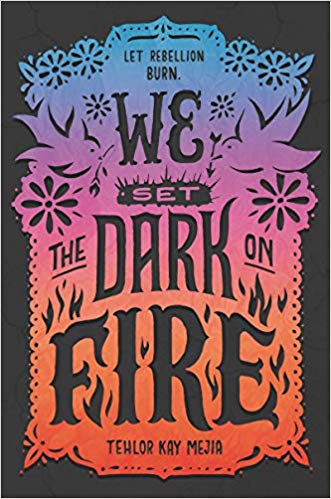
Confession: Sometimes I suspect I’m not a natural fantasy reader. That doesn’t mean I can’t love fantasy, of course, but where some people are automatically excited to be dropped into a new world they don’t know anything about yet, I’ve been known to read a book and think, “So…why isn’t this just set in regular California instead of California where some people do magic?”
I never thought that reading We Set the Dark on Fire by Tehlor Kay Mejia.
The world here—and this is the main thing I wish for in a fantasy book—felt immediately logical and real, even before I’d begun to explore it. The story—and the island nation of Medio—begins with a myth about two brother gods fighting over a woman. But the story isn’t about gods behaving badly. The myth, for Medionites, is there to provide justification for how their society operates. Sons of privilege take two wives. One wife, the Primera, is chosen for her logical, analytical nature. She’s the wife he takes to a state dinner. The Segunda is chosen for her passion and beauty. She’s the mother of his children.
Such an arrangement might have come across as bizarre or worse, hopelessly contrived to put our heroine, Daniela Vargas, into the terrible position she finds herself in when she’s chosen by Medio’s most eligible, wealthy bachelor, a man many believe will one day be president. Instead, it felt completely organic. Not just the marital situation, but the elite finishing school that prepares girls for one wifely role or the other. And the parts of the island said to have been cursed by the vanquished god, a place where Medio’s poorest are exploited and hidden from the wealthier inhabitants by a wall. Inequality, in myth and practice, is part of Medio’s soul, so the elite would have us believe.
Then there’s the Segunda, the other wife Dani’s going to live with. Imagine your worst enemy in school. The girl you trust least in the whole world. Now imagine sharing your husband with her…while you’re being blackmailed into spying on him for a group of rebels. None of this is a spoiler. The minute you’re introduced to Dani’s situation you know where she’s quickly headed. You just don’t know how she’s going to handle it once it happens.
Dani’s situation is dire, but never bleak. I’ve heard Mejia’s world referred to as a dystopia, but the book felt too hopeful for that label to me. The young people in this world are ready to fight and love (did I mention there’s queer romance? There’s a queer romance!) and build a better future for themselves. The beauty and joy of Medio is never completely obscured by the greed and cruelty of its ruling class.
The stakes of the story are very clear, both for Dani and for the people of Medio. The danger is real, and it’s not at all clear that Dani is up to the task. She may have graduated finishing school with a degree in strategy, manipulation and repressed emotions, but she’s really none of those things at heart. Sometimes she does risky things for emotional reasons, but rather than being impatient with her, I just found myself rooting for her to get out of this alive.
I was rooting for the rebellion as well. The world of Medio is painfully relevant to our world, while still standing on its own as a fantasy creation. Latin American culture, class conflict and feminism are woven into the DNA of the book and Dani herself. Her parents sacrificed everything to lift her out of poverty and give her a better life, but can she in good conscience enjoy the good life herself knowing others just like her are still oppressed? Even if she wasn’t being blackmailed? Either way she chooses, she’d be letting someone down, so she can only choose based on who she, Dani, is…once she figures that out.
 Meg Belviso holds a BA in English from Smith College and an MFA from Columbia University. As a writer and editor, she chronicles angel encounters as staff editor of Angels on Earth magazine and has written for various fiction and nonfiction properties, including several biographies in Penguin’s Who Was…? series.
Meg Belviso holds a BA in English from Smith College and an MFA from Columbia University. As a writer and editor, she chronicles angel encounters as staff editor of Angels on Earth magazine and has written for various fiction and nonfiction properties, including several biographies in Penguin’s Who Was…? series.

Book Friends: Rin Chupeco
Reintroducing… book friends! As part of our 2021 Guest of Honor weeks, the Sirens team recommends books that would be friends with a guest of honor's books. Below is a curated list of titles that we feel complement the works of Rin Chupeco, author of Wicked As You Wish, the Bone Witch trilogy, the Never Tilting World series, and The Girl from the Well duology. If you enjoyed their work, we hope you check out these other reads that feature contemporary fairy-tale retellings; explorations of systemic racism, feminism, and villainy; awesome queer characters; really good book boyfriends; ghosts; snarky phoenixes; and the occasional second-world high fantasy.

Rin Chupeco’s Favorite SFF Books
Sirens Guest of Honor Rin Chupeco shares a list of favorite science fiction and fantasy works. If you’ve enjoyed Rin’s work, we encourage you to check out these other reads. Take it away, Rin!
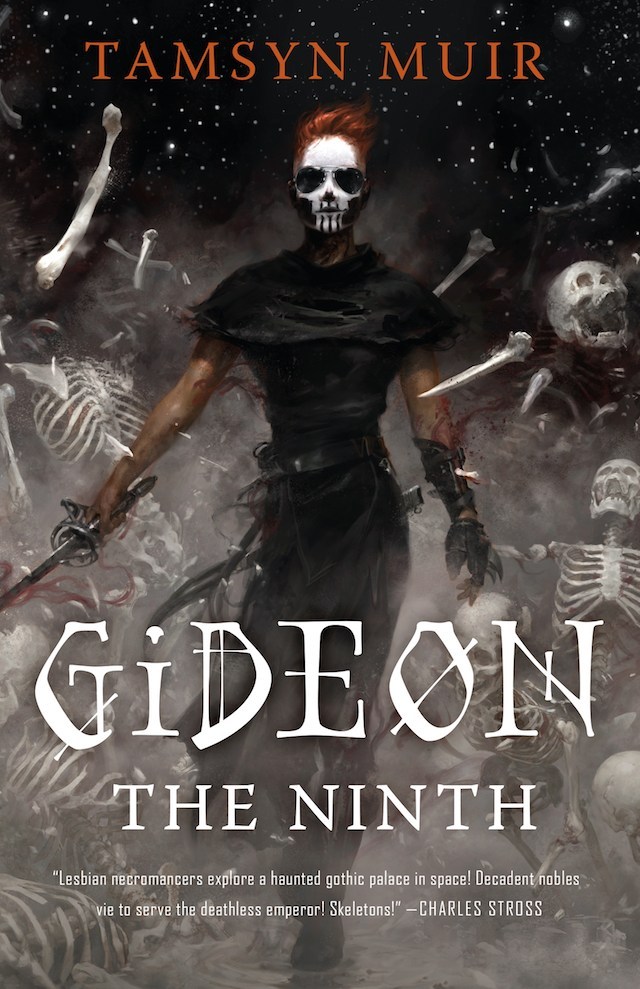
Gideon the Ninth by Tamsyn Muir
I cannot stop screaming about this series. Lesbian swordfighting necromancers arguing in space as they explore a haunted house space station is the wildest description I never thought I would want. Muir’s prose is gorgeous, and I have never wanted to paint my face like a skull till I read this book.
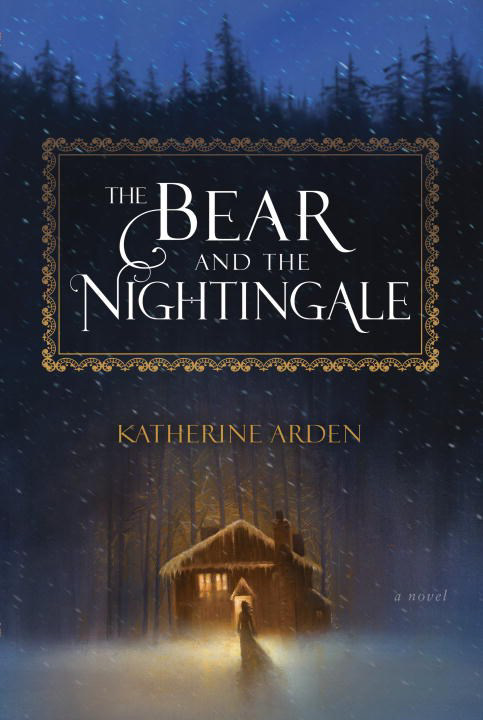
Fantasy
The Bear and the Nightingale by Katherine Arden
How breathtaking is this book? A young Russian woman named Vasya who is worth her weight in magic, holding her own against a powerful zealot and the god of winter himself—this is a gorgeous, gorgeous delight.
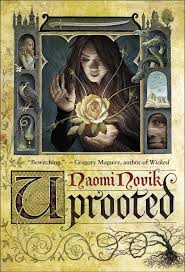
Science Fiction
Uprooted by Naomi Novik I don’t know how to even begin to describe this book. It hits all my favorite tropes, from surly cranky broody magician to powerful magical girls who finally understand their own worth.

Science Fiction
Magic for Liars by Sarah Gailey It’s a murder mystery at a magical school by a hard-knock private detective who is both seasoned and salty at the same time. I love a lot of Gailey’s works, and they are just fantastic at this.
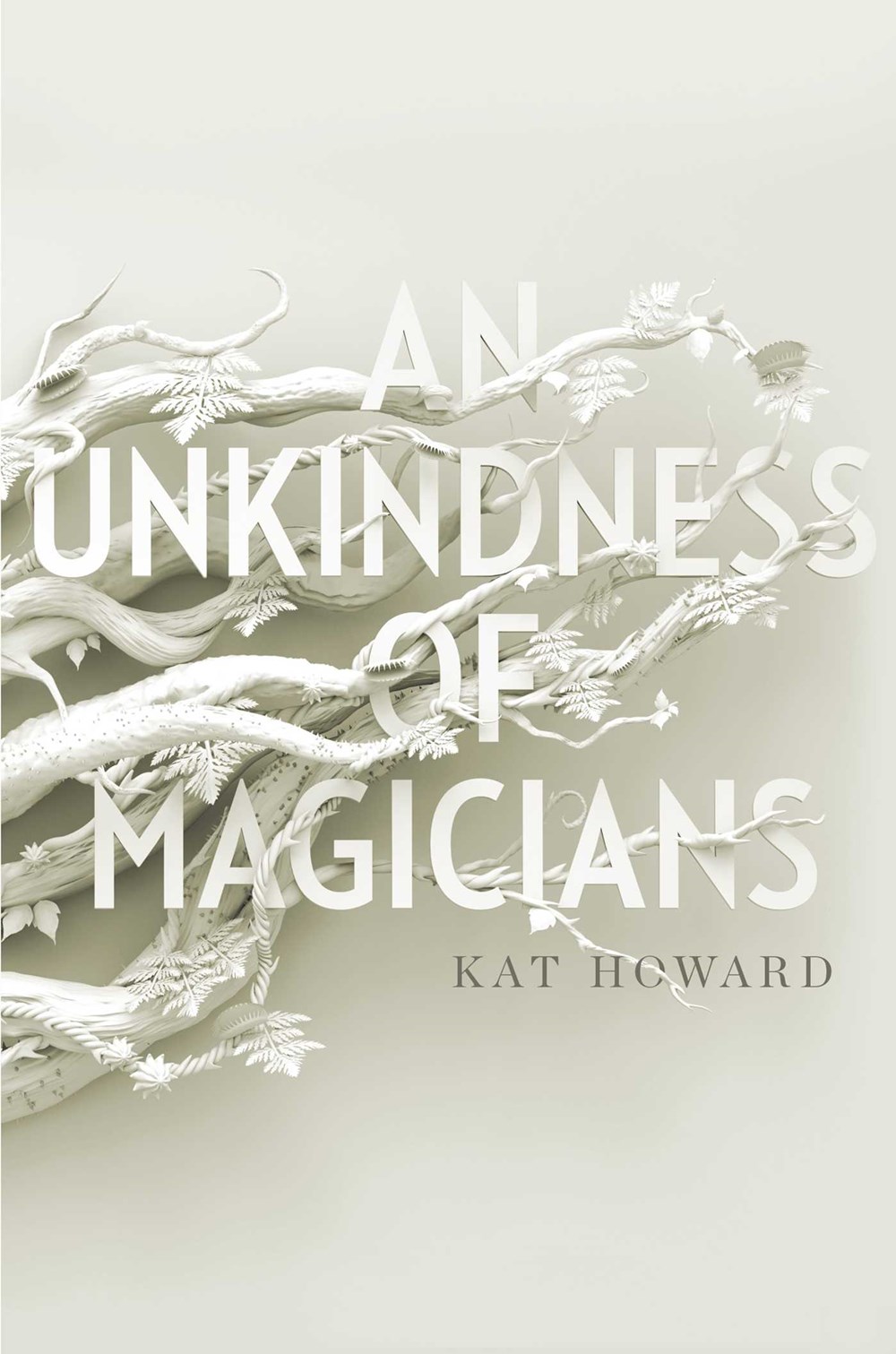
An Unkindness of Magicians by Kat Howard This is urban fantasy at its best, and this was an amazing read. I am a sucker for magical fighting tournaments and seedy moneyed politics.
Rin wrote obscure manuals for complicated computer programs, talked people out of their money at event shows, and did many other terrible things. They now write about ghosts and fantastic worlds but are still sometimes mistaken for a revenant. They are the author of The Girl from the Well and its sequel, The Suffering; The Bone Witch trilogy; The Never Tilting World duology; and the A Hundred Names for Magic series, starting with the first book, Wicked As You Wish. They were born and raised in the Philippines and, or so the legend goes, still haunt that place to this very day. For more information about Rin, please visit their website or their Twitter

The Bone Witch by Rin Chupeco
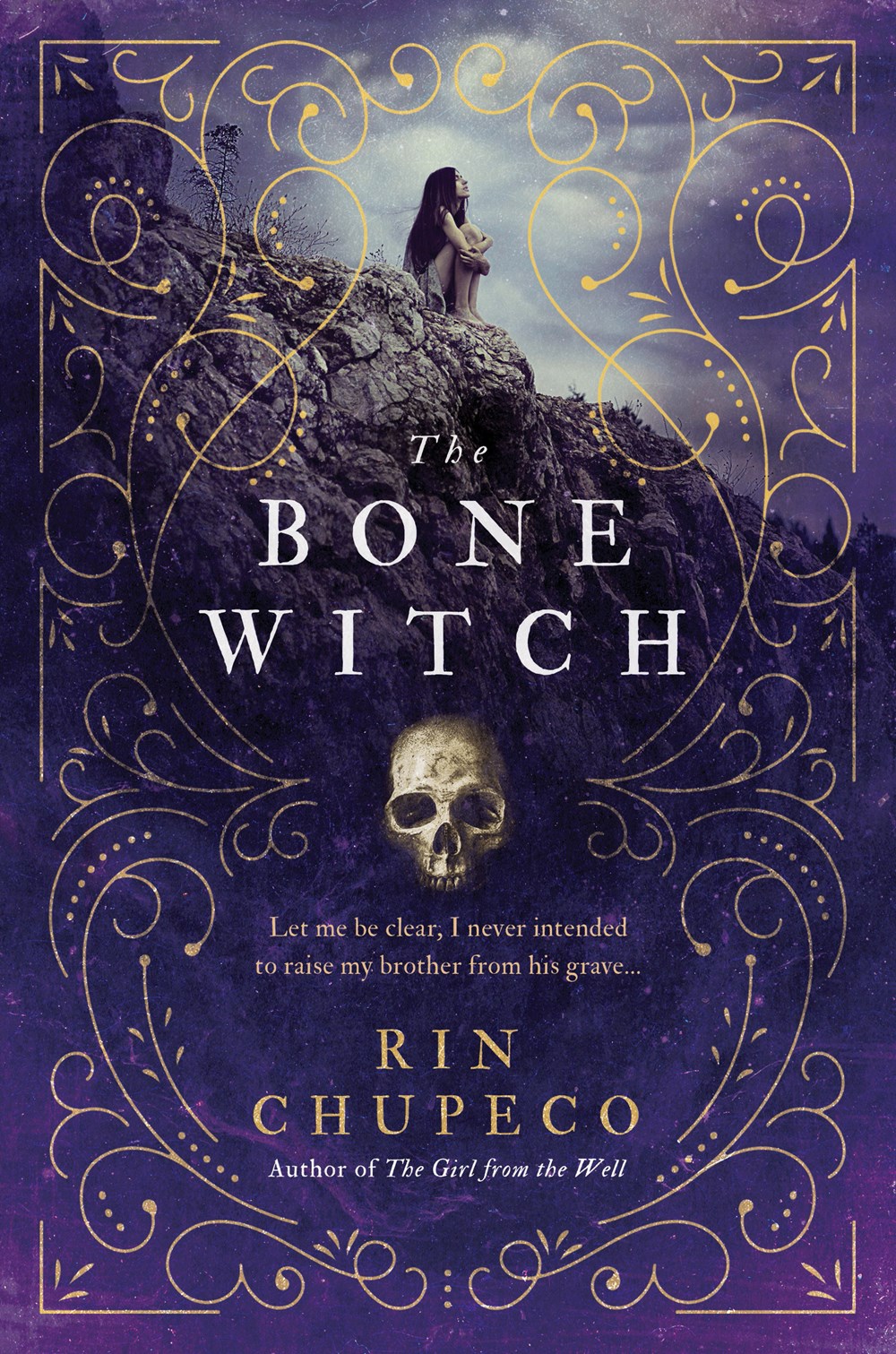
I’m going to confess: I picked up Rin Chupeco’s The Bone Witch with some trepidation. I had tried reading this YA fantasy before and stopped a few times before filing it away and ultimately restarting. The worldbuilding—freshly un-Eurocentric and inspired by the mythologies of the Middle East and Asia—was, at first, confusing. The novel’s structure demands time and patience, as it flips between short italicized chapters in the present, and longer, more narrative chapters set in the past before the storylines converge. And I’ll tell you upfront: Reading The Bone Witch is, at minimum, a two-book commitment—since the storylines don’t converge in the first book, nor the sequel. You’ll have to wait for the grand finale for that.
But damn, it’s so worth it.
Understanding The Bone Witch
And so, I do you a service because you all need to read these books. In the land of Eight Kingdoms, there are two rules of magic that, if you know them up front, will make the series easier to delve into. First is that magic is gendered in a fascinating and strange way. A chosen few have magic and can control the elements like fire, water, earth, etc. If you’re a girl when this talent is discovered, you are trained as an asha in the capital, where you learn how to wield your magic alongside learning etiquette, dancing, and entertaining heads of state in a diplomatic capacity. If you’re a boy, you’re conscripted into the Deathseeker army. There’s a lot to unpack here, especially through Likh, a trans girl who wishes to become an asha—and who is also one of my faves in this book.
And second, there’s a thing called a heartsglass that people wear around their neck, which is tied to one’s identity in complex ways. If your heartsglass turns silver, it means you have a capacity for magic; you can also give it away to a loved one in an act of romance or safety, but at the risk of that other person having control over you; if you are especially magically talented, you can read other people’s heartsglasses since they will change color depending on their true emotions (and you can tell if they’re lying to you).
What The Bone Witch is About
Then there’s Tea. We’re introduced to the world of The Bone Witch through Tea’s eyes, and she is only twelve at the beginning, when she inadvertently raises her brother, Fox, from the dead. It’s discovered that Tea is not only an asha, but a dark asha, with magic that allows her to raise and control the dead. And so, Tea is one of two bone witches in the realm, a profession that, despite its importance, is much maligned. Ever since The False Prince used death magic to raise the daeva, monsters that terrorize people every so often, bone witches have done the dirty work to keep them at bay and are tainted with that reputation by association.
The Bone Witch is a painstaking book of set-up. With uneven pacing, we get all the above, plus Tea’s origin story where she’s whisked away to the palace to train as an asha by the only other bone witch, Lady Mykaela. Despite her aptitude, she faces setbacks, including some pranks by fellow ashas-in-training, a training master who hates her, and mounds of backbreaking chores. She reaps chaos by not knowing how to control her power and accidentally raises dead kings and monsters. She catches the eye of the prince and his cranky cousin-slash-bodyguard, and is thrust into the royal court’s political machinations.
The biggest and most satisfying arc in this book is Tea’s relationship with her brother, Fox, where they learn these nice things called healthy boundaries and how to be a family despite the supernatural link between them.
But please, have patience. This is no worse than The Name of the Wind, which many of you have enthusiastically or like me, begrudgingly, read. You can see the schematic of something bigger before you—a cast of characters you will cheer on and love, a thoughtful musing on women rebelling against the roles their society has trapped them into, a descent into villainy (or anti-heroism? Let’s do some more unpacking) when justice is denied with each betrayal, and a girl who learns how to command her power despite the trauma inflicted on her by her peers and foes.
And I’ll just say, I’ll just say. There’s barely a hint of a romance in The Bone Witch. But then you read The Heart Forger and it does things to you and what the heck, Chupeco? How dare you? Must you make me agonize over this slow burn relationship and then smash my heartsglass into a million pieces in The Shadowglass? The seeds of the romance planted in the first book turn out to not only be SUPER SWOONWORTHY but like, really screws you up especially during this quarantine life when your emotions are dialed up to eleven, okay? And that’s just the main couple, there are other relationships that are lovely and meaningful, fantastically queer, and too adorable for words—sometimes all at once.
Just do yourself a favor, and acquire The Heart Forger and The Shadowglass so you have the whole trilogy before you start. You’ll thank me later.

Faye Bi is the director of publicity at Bloomsbury Children’s Books, and spends the rest of her time reading, cycling, pondering her next meal, and being part of the Sirens communications team. She’s yet to read an immigrant story she hasn’t cried over, and is equally happy in walkable cities and sprawling natural vistas. You can follow her on Twitter @faye_bi.

Wicked As You Wish by Rin Chupeco
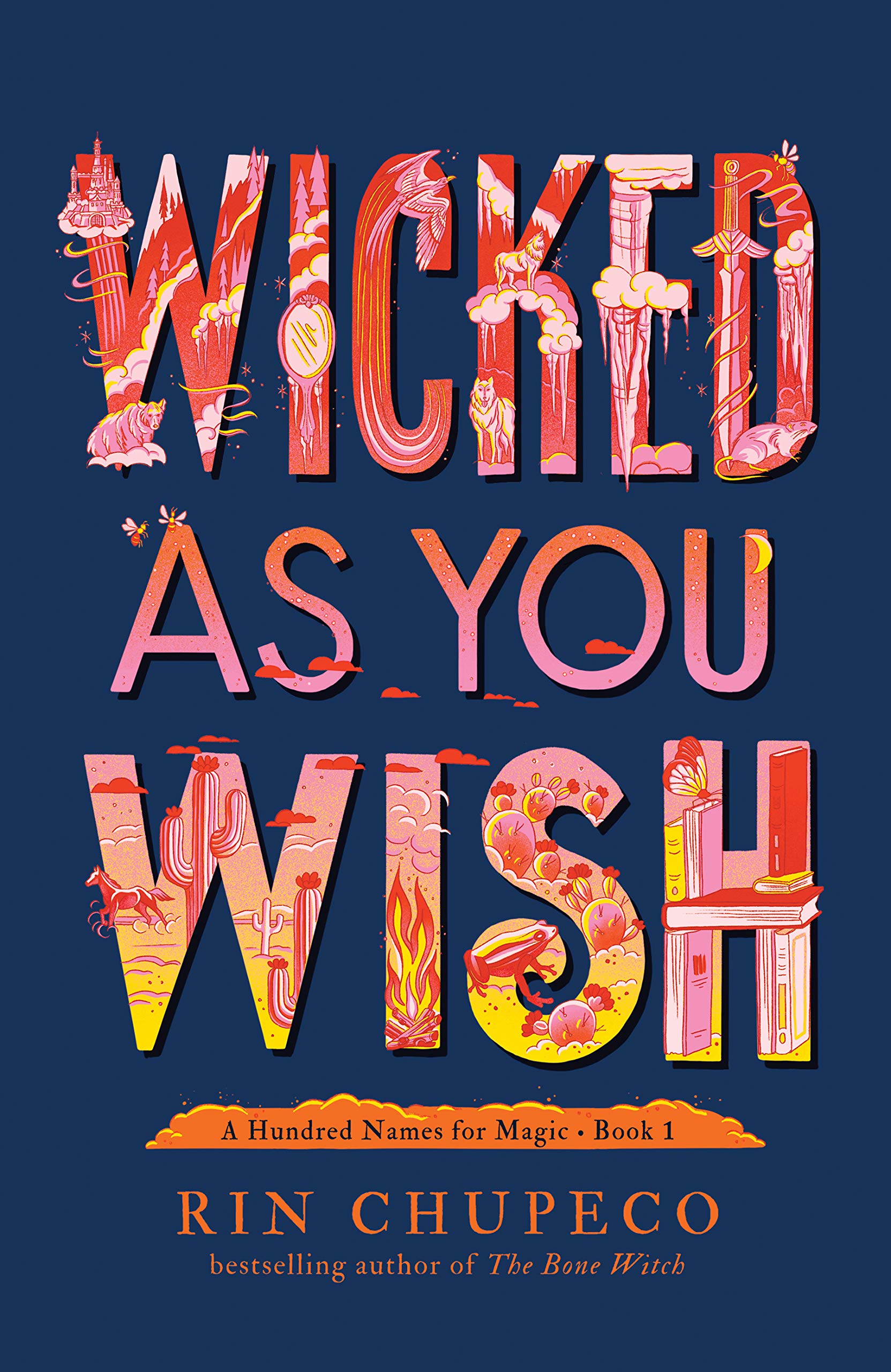
Rin Chupeco’s Wicked As You Wish is a wild, romping adventure
Speaking generally, I’m not the audience for boisterous, busy, weird ensemble novels, so Wicked As You Wish shouldn’t have been the book for me. It’s like a thousand-piece puzzle: you turn over all the bits and find them packed with little details, and then the picture doesn’t come together until you’re halfway through. This is not a reading experience that typically endears me to a book.
And yet in this case, I was invested from the first page, long before I could see what it was doing. Maybe it was the book’s brightness, or the total matter-of-fact conviction with which Rin Chupeco presents the worldbuilding. Maybe it was the chapter titles, which include such gems as “In Which Government Agents are Assholes, But What Else is New” and “In Which the Firebird is an Absolute Unit”. Or maybe it’s the fact that this is the kind of book that grins at you sidelong and says, “okay, but what if ICE are double agents for an actual evil Snow Queen?” (It was all of these things. This book is extremely charming.)
But then, past the halfway point, Wicked As You Wish looked me dead in the face and told me: in a world so like our own, where everyone in power is making terrible mistakes and everyone is trying to fix them in the same flawed ways, concepts like good and evil are based at least in part on jingoistic bias. And it clicked. In with all the shiny parts, this book is very real.
Wicked As You Wish takes place in an alternate present with a blended mythology that assumes all fairy tales and fairy tale-adjacent classics (Arthurian legend, Wonderland, et al.) are based in reality. Magic is real, albeit tightly bound by law. It has all the wonder of those old stories, stuffed into all the bureaucratic capitalism of the world we know.
This worldbuilding is handled at breakneck speed to make room for the story: Tala is a Makiling, the daughter of a line of spellbreakers, training with her extended family to protect a prince. The prince, Alexei, is less in exile and more in magical witness protection. His kingdom was frozen in time at the end of a war with the Snow Queen, and he’s waiting for his eighteenth birthday to see if a firebird shows up to declare him the rightful king so he can go save Avalon.
It does. So off they go with a motley crew of elite adolescents and their familial relics to thaw an extremely magical kingdom that’s been separated from the world for twelve years.
The beauty of Wicked is in the moments when you fall in love with these characters. They’re all doing their best, juggling a world-saving quest with justified teenage feelings. The responsibility of saving and ruling a kingdom makes Alex act like an asshole, which it would probably do to most teen boys with complicated social lives. Tala feels like a burden as much as she does an asset most of the time, and doesn’t understand why her best friend is being such a dick to her and everyone else. There’s a ranger with a magical staff that turns into a toothpick when they need it to, whose dads defied aristocratic convention to be together. There’s a boy with twin swords, one that actively drives people to terrible violence, while the other will cut no living thing. One of the party is a douchey Nottingham descendant with necromancy in his bloodline and a heart of gold. (The Locksleys got rich and pretty somewhere along the way and they’re an awful lot less cool now, in my opinion. It’s a far-removed sidenote, but I’ve made my choice.)
Tucked into this glitterbomb of a story, though, are big ideas. Important ideas. This is one of the first young adult novels I’ve read that really understands the problems with idolizing royalty—or anyone in a position of political power. At its heart, Wicked As You Wish is not just a novel about teenage heroes. It’s a novel about what we do to live with ourselves. It’s about redemption, not in a single great act, but as a path one walks for the rest of one’s life. It’s about trusting complicated people, including yourself. And it’s about power: who gets it, who is burdened by it, and who is willing to use it.
These things hum in the background, harmonizing with a wild, romping adventure. This book is complex, with a great cast of chosen ones on a quest with a lot of moving parts. There’s so much to it that it took me a while to latch on securely enough to enjoy the ride, but it was well worth it. It surprised me and moved me and got me deeply invested before the end. I can’t wait to see what happens next.
And it doesn’t hurt that it is an absolute delight.
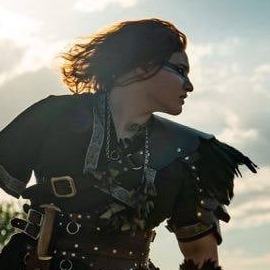
Jo O’Brien is a writer, artist, cosplayer, mythical creature, and Viking who lives in northern Colorado, wrangling a host of familiar spirits. She draws and writes about ambitious, unrepentant, sometimes vicious women in novels and for live steel horse theater. She has been a member of the Sirens community since 2011.
The Sirens Review Squad is made up of Sirens volunteers, who submit short reviews of books (often fantasy literature by women or nonbinary authors) they’ve read and enjoyed. If you’re interested in sending us a review to run on the blog, please email us!


































































































Connect with the Sirens community
Sign up for the Sirens newsletter